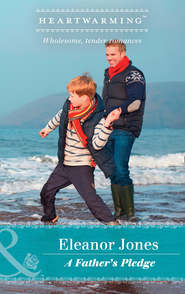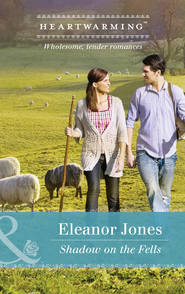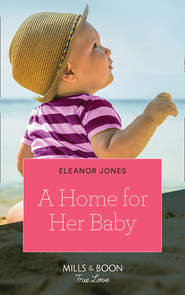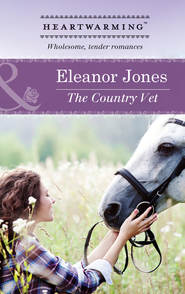По всем вопросам обращайтесь на: info@litportal.ru
(©) 2003-2025.
✖
A Heartbeat Away
Автор
Год написания книги
2018
Настройки чтения
Размер шрифта
Высота строк
Поля
“I think it’s time you faced up to the fact that your father is never going to come back. He has deserted us, and now he’s lost our home.”
I felt a tide of disappointment well up inside me and overflow into a flood of emotion that took over my small body, emotion just too great for a six-year-old to bear. So I threw myself on the floor, rolling and screaming and hurling abuse at my poor sad mother, who had all of a sudden gone so quiet. She looked down at me, arms crossed over her chest.
“Well, you’d better get used to it,” she eventually said in a dull, flat voice. “I’ve had to.” Then her arms dropped to her sides, and she turned her back on me and started to leave. I felt a really bad pain deep inside my heart, and I sat up and stretched my hands out toward her.
“Mom,” I called. “Mom.”
She hesitated, and I scrambled to my feet, pleading with her not to go. She glanced at me with sad eyes.
“Mom,” I whispered.
The gloomy hallway felt as though it was closing in all around me. She held out her arms, and suddenly I was being squeezed so tightly that I couldn’t breathe and we were crying together.
We sat like that for ages, my mom and me, on the bottom step in the murky hallway, until I had my good idea.
“I know,” I said, feeling happy and sad at the same time. “My dad can sell his horse and then we’ll have some money.”
My mom sucked in a great gasping breath, and she began to laugh louder than I’d ever heard her before, even when my dad was here and they used to be happy. She laughed so loudly that it started to frighten me because her eyes were wild. When her laughter turned to sobs again and her arms fell away from me, I went out of the front door and began to walk toward Homewood Farm. Daniel would know what to do.
The farm seemed a long way down the lane. I stopped to watch a big fat bumblebee inside a purple flower, buzzing and buzzing so that the flower shook and wobbled. After the bee flew off, I picked the flower and tried to stick it into my hair, but it kept falling out, and in the end I just left it lying on the ground and carried on walking along the hot, dusty lane.
The farm was a lot farther than I had thought it would be, and after a while I sat on the grass beside a wooden gate because my legs felt very tired. I wasn’t frightened, though—at least, only for my mom. And then I remembered the wild scary look in her tired eyes—the look that had made her appear like someone else—and I clambered to my feet. I had to get Daniel and Mrs. Brown. My aching muscles brought fat tears to my eyes, but I forced my feet into a jog and set off again along the lane, sobbing quietly in rhythm with my shambling strides, until at last I saw the high gray roofs of Homewood Farm, nestling between two softly rolling green hills.
Relief overwhelmed me, and I stopped to stare at the familiar sign above the gate—as I always did when I visited with my mom. From below an arc of ornate writing, the painted black-and-white cow gazed down at me with big kind eyes. Sometimes the sign swung and creaked so much in the wind that I thought it might make the poor cow feel sick, but today it stayed motionless, as still as the air itself. In fact, the only thing that seemed to be moving anywhere at all today was the red tractor in the field they called the far meadow, just in front of the square stone farmhouse. The tractor was going up and down, up and down, and every time it drove across the field, green grass turned to brown. I watched for a while, just until my legs ceased to ache, and then the red tractor pulled up and Mr. Brown climbed out. I knew it was Mr. Brown because he was the only person with hair so red that it shone like flame in the sunshine, a bit like his tractor.
He strode toward me with a worried smile on his big, kind face.
“Whatever are you doing out on your own, Miss Lucy?” he asked.
I liked the way he always called me Miss Lucy, and I rolled the word around inside my mouth, feeling special.
“Where’s your mom, lass?”
I remembered, and my bottom lip started to tremble.
“She’s…she’s…”
He took my small plump hand in his large, calloused palm and lifted me high into the air.
“Come on,” he said. “Let’s go and find Mother Brown.”
I felt so safe riding high on Mr. Brown’s shoulders that I began to feel better. I clung to his forehead as he marched us across the lane and through the orchard toward the house.
“My mom’s very sad,” I told him, and I felt him nod.
“She said that my dad has des—des…Has lost our house,” I added.
He halted and swung me down onto the ground. “And where is she now?” he asked me in a low voice.
I gazed into his kind face and I thought it was just like Daniel’s—except that his eyes were a pale blue and Daniel’s were brown—so I smiled at him and answered his question.
“She was crying and crying and crying, and I was frightened, so I’ve come to see Daniel.”
A funny expression passed over Mr. Brown’s face then and he put his rough hands around my face and looked me in the eye.
“Well, don’t you be worrying yourself, little miss,” he told me. “Mrs. Brown will go make sure that your mom is alright, and you can stay here and play with Daniel. In fact…” He lifted his head and pretended to sniff the air. “I think I can smell biscuits fresh from the oven, so we’d better hurry before they’re all gone.”
That was the start of some of the best weeks of my life. The Browns didn’t tell me much about my mom except that she was ill and the doctor said she had to go to the hospital for a while to get better. I was sad at first, until Mrs. Brown said that I could stay with them and have my own room and everything. Then I felt as though I had come home.
“Can I stay here forever?” I asked her.
She laughed.
“Just until your mom gets well again, then you’ll have a new house to live in.”
My heart started to beat rapidly and I clutched at her sleeve.
“Will my dad be there?”
A frown darkened her plump, homely features, and when she leaned over to give me a quick hug, I could smell violets on her skin.
“I don’t know, love,” she told me.
That summer passed in a haze. I had to work, as did Daniel, feeding hens, sweeping up, helping Mrs. Brown in the huge, warm, lovely smelling kitchen. At night I fell into bed with aching legs and eyes so tired that they were shut before my head hit the soft feather pillow. But there was still time for play. On occasion Mrs. Brown would stop what she was doing and say, “Off you go now, lass. Find Daniel and get yourselves away to play.” And off we would go to spend hours trying to catch fish in the beck at the bottom of the far meadow, or grooming Daniel’s fat bay pony, Chocolate. We didn’t ride him much because he had something that Mr. Brown said was laminitis and his feet kept getting sore, but Daniel told me what to do and we used to put the saddle on a big log at the bottom of the orchard and pretend to trot and canter. I was determined that one day I really was going to ride.
Now and then I would wake in the night and lie in the darkness, thinking of my merry bright-eyed dad and my poor sad mom, and then a kind of guilt would creep over me as I imagined her, all alone somewhere, trying to get well while I hardly spared her a thought my life was so full. In the morning I would go straightaway to find Mrs. Brown and ask her when my mom was coming home, and deep inside, almost hidden even from myself, a part of me would dread her answer, knowing that it might spell the end of my days at Homewood.
My thoughts on my father were worrying. I couldn’t help but feel a sense of loss because his larger-than-life personality had ruled my world for so long—had been my world. Yet there was also anger—anger that he had let me down and betrayed my trust. And then the image of his handsome face would flash into my mind, and as the memory of his laughter echoed around the room, I would climb down from my high bed by the window to reach for my scuffed red shoes, remembering the day he gave them to me—the day he went away. And when I awoke in the morning thereafter, my pillow would always be damp beneath my cheek, soaked with the tears I had shed in my sleep.
Mrs. Brown never made a comment, but when I would go back to my room the following evening, my pillow would always have been changed for a clean dry one, and sometimes she would look at me with a worried expression in her deep brown eyes.
Summer was over on the morning that she inquired about a visit to my mom. The apples in Mr. Brown’s orchard had all been picked, the trees had turned from green to golden-brown and Chocolate’s coat had thickened so much in readiness for winter that I needed all my strength to brush out the mud when he came in from the paddock. His feet were much better, so Mr. Brown said we could ride him, and Daniel gave me lessons in the orchard. Around and around and around we would go, up and down, up and down in the trot until my legs began to ache. Then Daniel would get on, and suddenly Chocolate could do all the things he wouldn’t do for me, and I would groan and laugh and try again.
Mrs. Brown was leaning over the breakfast table, pouring tea from the big brown pot, and she asked it almost casually.
“Would you like to go to see your mother today, Lucy?”
The almost hidden feeling of dread began to churn inside my stomach, and I stared hard at the clear amber liquid gushing from the spout in a perfect arc to fall noisily into Mr. Brown’s flowered cup.
“To see your mother,” she repeated in a matter-of-fact voice. “She’s so much better now, and she’d love to see you.”
The teapot clunked back down onto the table with a thud that reverberated around the sunny kitchen and she looked at me pointedly.
“Can Daniel come?” I asked.
For just a moment her neat white teeth took hold of her bottom lip, and a frown flitted across her face, then her usual soft smile slipped back into place.
“I don’t think that is a good idea this time,” she said. “Wouldn’t it be nice for it to be, you know, just you and your mom?”











